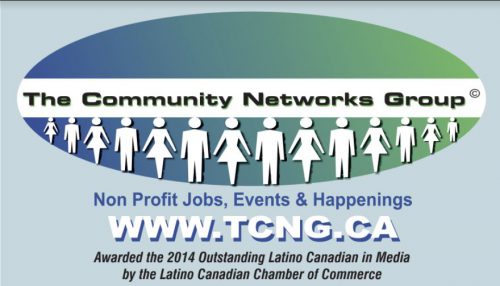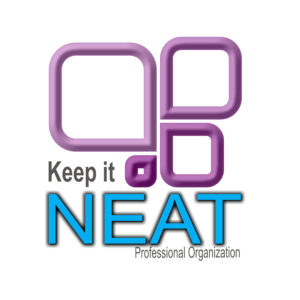
By Randal Adcock, MA, President, Wayfinders Business Co-operative
Many people don’t know much about co-operatives as a form of corporate structure. They know even less about the co-operative community and worldwide movement. I can tell you a bit about these from my Wayfinders point of view.
The ACCA Annual Conference
As President of Wayfinders Business Co-operative, I had the privilege of attending the exciting 2024 Alberta Community and Co-operative Association (ACCA) annual conference in Edmonton this week. The event was both a homecoming and a forward-looking experience, offering a unique blend of reconnecting with long-standing colleagues and engaging with emerging leaders in the cooperative sector.
Reflecting on my journey, I recall my training two decades ago to become a worker co-op developer. Hazel Corcoran, then Executive Director of the Canadian Worker Co-op Federation (CWCF), connected me with mentors such as Lynn Hanley of Communitas in Edmonton and Marty Frost from British Columbia. At the conference, I had the pleasure of reconnecting with Lynn, who delivered an insightful presentation on housing cooperatives in Canada, her area of expertise. Hazel was also present to receive an award recognizing her innovative contributions to the cooperative movement.
It was equally gratifying to reunite with Elliot Bridgewater, LLB, Alberta’s leading cooperative and social enterprise lawyer. Elliot was honored with one of the two Visionary Leadership awards for his work with the Water Valley Investment Co-op near Calgary. Additionally, I was proud to see Prof. Mohamed Maie, author and one of our newest members at Wayfinders, receive the second Visionary Leadership award for his lifelong dedication to cooperative promotion, development, and education. This continues Wayfinders’ tradition of excellence, following last year’s awards to fellow Wayfinders Yvonne Chui of Multicultural Health Brokers Co-op, and Lindsay Luhnau, recognized for her innovative work in Calgary. I feel proud that we are able to attract this level of talent and conviction to our worthy cause!

Figure 1Prof Mohamed Mai and Abukar Maie with Premier Danielle Smith
The conference was a fertile ground for building the future of the cooperative community. I engaged with dynamic individuals from new startups and established federations, including multistakeholder cooperatives serving both consumers and producers, as well as large utility cooperatives providing rural communities with essential services like gas, electricity, and clean water. Notably, Calgary Co-op boasts approximately 260,000 members, underscoring the significant impact of cooperatives in the region.
The event highlighted numerous opportunities for collaboration, alliances, and partnerships among cooperatives and other organizations, such as Alberta’s agricultural societies. I gained valuable insights into promoting and growing cooperatives and discovered various resources available to support them. An idea emerged: Wayfinders could consider offering a crowdfunding platform for our members and regional cooperatives to facilitate growth and innovation.
A highlight of the conference was Alberta Premier Danielle Smith’s address, marking her second consecutive year emphasizing the importance of cooperatives in Alberta’s economy. Her presence, along with several ministers and MLAs at the Tuesday night mixer, demonstrated the government’s recognition of the cooperative sector’s vital role, even amidst significant political events elsewhere.
The conference was an inspiring and informative experience. I encourage fellow Wayfinders to attend future events to immerse themselves in the regional cooperative sector and contribute to its ongoing development. There is much to be learned, explored and understood in the world of co-operatives.
Co-operative in the Social Economy Sector
Cooperatives are member-owned and democratically controlled enterprises that prioritize the needs and aspirations of their members over profit maximization. They play a pivotal role in the social economy by fostering inclusive growth, community development, and sustainable practices.
As of recent estimates, there are approximately 3 million cooperatives worldwide, encompassing various sectors such as agriculture, finance, retail, and housing. These cooperatives collectively serve over 1 billion members, highlighting their extensive reach and impact on global economies.
The Seven Cooperative Principles
Cooperatives worldwide adhere to seven core principles that guide their operations and governance:
1. Voluntary and Open Membership: Cooperatives are open to all individuals willing to accept the responsibilities of membership, without discrimination.
2. Democratic Member Control: Members actively participate in setting policies and making decisions, adhering to democratic processes.
3. Member Economic Participation: Members contribute equitably to, and democratically control, the capital of their cooperative.
4. Autonomy and Independence: Cooperatives are autonomous organizations controlled by their members.
5. Education, Training, and Information: Cooperatives provide education and training for their members, elected representatives, managers, and employees.
6. Cooperation Among Cooperatives: Cooperatives serve their members most effectively and strengthen the cooperative movement by working together through local, national, regional, and international structures.
7. Concern for Community: Cooperatives work for the sustainable development of their communities through policies approved by their members.
There is a co-operative for everything,
There is a co-operative for everything, spanning nearly every sector of society and economy, from essential services to niche markets. Co-operatives can be found in agriculture, where farmers pool resources for equipment, seeds, and marketing, to housing co-ops that provide affordable living spaces owned collectively by residents. They include worker co-ops where employees are also the owners, fostering a democratic workplace, as well as consumer co-ops that empower shoppers with collective purchasing power. Energy co-ops generate and distribute renewable energy, while financial co-ops, like credit unions, offer community-based banking services. Even in healthcare, arts, and education, co-operatives build tailored solutions that align with community needs. This vast diversity underscores the cooperative model’s adaptability, proving that no matter the need or industry, there is likely a co-operative ready to address it through shared ownership, mutual benefit, and democratic governance.
Cooperatives in Canada and in Alberta
In Canada, the cooperative movement is robust and diverse. According to Statistics Canada, in 2021, there were 5,605 active non-financial cooperatives across the country. These cooperatives held $47.3 billion in total assets and employed 100,755 individuals, contributing significantly to the national economy.
Alberta’s cooperative sector is a vital component of the province’s economy. In 2021, Alberta was home to 493 active non-financial cooperatives. These cooperatives operate in various industries, including agriculture, retail, and housing, providing essential services and employment opportunities to Albertans. In addition, we have many credit unions, which are financial co-ops.
Several associations support and advocate for cooperatives at various levels. Wayfinders belongs to two:
Alberta Community and Cooperative Association (ACCA): ACCA is dedicated to strengthening Alberta’s cooperative sector through education, advocacy, and the promotion of cooperative principles. It provides resources and support to existing cooperatives and assists in the development of new ones.
Canadian Worker Co-operative Federation (CWCF): CWCF is a national, bilingual association of worker cooperatives and related organizations. It aims to support the development of worker cooperatives and promote the worker cooperative movement in Canada. Wayfinders is not a worker co-op but is an associate member of CWCF and receives potential benefits.
United Nations International Year of Cooperatives
The United Nations General Assembly has recognized the significant role of cooperatives in social and economic development by declaring 2025 as the International Year of Cooperatives (IYC2025). Celebrated under the theme “Cooperatives Build a Better World,” this designation underscores the cooperative model as a crucial solution for addressing various global challenges and advancing the implementation of the Sustainable Development Goals (SDGs) by 2030.
While precise membership numbers can vary, it is estimated that globally, cooperatives serve over 1 billion members. In Canada, millions of individuals are members of cooperatives, benefiting from the goods, services, and community support these organizations provide. In Alberta, cooperative membership is substantial, reflecting the province’s strong tradition of mutual aid and community collaboration.
Wayfinders Business Co-operative
Wayfinders Business Co-operative, based in Alberta, exemplifies the cooperative model by supporting its members, including small businesses, non-profits, and other cooperative organizations. As a social enterprise, it is embedded in a regional, national, and international community of cooperatives, aligning with the global cooperative movement’s principles and objectives.
In conclusion, cooperatives are integral to the social economy, promoting inclusive growth, democratic participation, and community development. Their global presence and adherence to core principles make them vital contributors to sustainable development and social well-being.




































